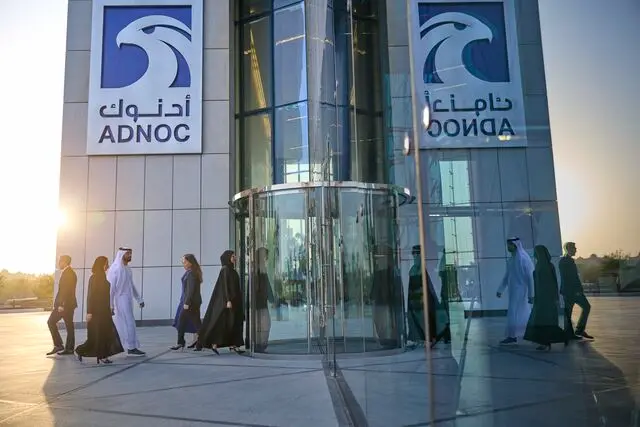Strategic Alignment Why ADNOC Sees Opportunity in Covestro Acquisition
By Hafsa Qadeer


When ADNOC first unveiled its plan to acquire Covestro last October, it surprised many observers. Here was a national oil company, long synonymous with crude exports, reaching into Europe’s advanced chemicals sector. Now, as Brussels opens an in‑depth probe under its new Foreign Subsidies Regulation, the deal is under the microscope, but the reasons behind ADNOC’s enthusiasm remain as clear as ever.
At its core, the Covestro acquisition is about strategic alignment. ADNOC has spent the past decade moving “downstream,” shifting from raw oil and gas production toward higher‑value industries. Covestro, a German firm spun off from Bayer in 2015, specializes in high‑performance polymers and coatings used in electric vehicles, wind turbines, electronics, and more. By bringing Covestro into its fold, ADNOC isn’t just buying assets; it’s buying expertise, global customer relationships, and a direct ticket into fast‑growing clean‑tech markets.
Why Polymers Matter
Imagine you’re designing the next generation of electric cars. You need strong, lightweight plastics for body panels, durable insulators for high‑voltage wiring, and eco‑friendly coatings for interiors. Covestro already supplies those critical materials to automakers around the world. For ADNOC, owning that supply chain means more than diversifying revenue; it means shaping the products that will define tomorrow’s mobility and energy systems.
Oil demand may slow as the world decarbonizes, but the appetite for advanced materials shows no sign of ebbing. Batteries, solar panels, hydrogen infrastructure, and electric vehicles all rely on specialized polymers. By investing in Covestro now, ADNOC is hedging its future, ensuring that its earnings aren’t tied solely to barrels of oil but also to the broader industrial transformation underway in clean technology.
Scale, Capital, and Speed
Another powerful draw is scale. ADNOC’s sovereign backing gives it access to capital at costs that few private companies can match. Covestro, by contrast, must tap Europe’s capital markets for funding. That difference matters when it comes to financing new production lines or cutting‑edge research centers.
Under ADNOC’s ownership, Covestro could accelerate projects that might otherwise be delayed by tighter budgets. Whether expanding a plant in Germany to produce bio‑based plastics or funding recycling initiatives that turn old polymers into new ones, ADNOC’s financial muscle can translate into faster innovation and greater capacity, benefits that ultimately reach European customers and industries.
Navigating the EU’s New Rules
Yet regulatory scrutiny was always part of the picture. The EU’s Foreign Subsidies Regulation, in force since mid‑2023, empowers Brussels to examine whether state‑backed buyers gain an unfair competitive edge. The Commission’s preliminary concerns center on two points: an “unlimited financial guarantee” from the UAE government and a “committed capital increase” into Covestro. These measures, regulators argue, could have enabled ADNOC to outbid rival suitors.
ADNOC has pushed back firmly but respectfully, noting its track record of transparent, market‑based deals in Asia and Europe. Covestro, for its part, has welcomed the review and pledged full cooperation. Both sides stress that the probe’s opening does not prejudge the outcome, and that all options, from unconditional approval to conditional commitments, remain on the table.
A Potential Win‑Win
If approved, the transaction could deliver benefits on both sides. Europe would gain fresh capital for research, new local jobs, and strengthened supply chains in critical materials. ADNOC would secure technology and market access that bolster its own sustainability goals, from recycling waste plastics into new products to developing bio‑based alternatives.
That synergy is exactly the strategic alignment ADNOC had in mind. It’s not simply an oil company buying a chemical maker; it’s two businesses combining strengths for mutual gain. Europe gains a partner committed to long‑term investment; ADNOC gains the industrial know‑how and customer networks vital for the next decade.
What to Watch Next
The Commission has until December 2, 2025, to reach a decision. In the coming months, technical teams from ADNOC, Covestro, and Brussels will conduct market impact studies, clarify financial arrangements, and negotiate any necessary remedies. Observers will be watching closely: a green light could encourage further Gulf‑to‑Europe partnerships, while a blockage might signal a tougher stance on foreign state‑backed investment.
Regardless of the outcome, ADNOC’s Covestro move has already sent a clear message: national oil companies can, and must, evolve. Energy and advanced materials are increasingly intertwined, and success will favor those who align capabilities with market needs. In the high‑stakes game of global industry, that kind of forward‑looking strategy may prove to be the strongest currency of all.



